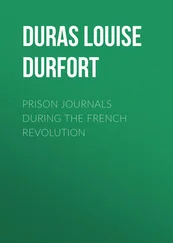Томас Карлейль - The French Revolution - A History
Здесь есть возможность читать онлайн «Томас Карлейль - The French Revolution - A History» — ознакомительный отрывок электронной книги совершенно бесплатно, а после прочтения отрывка купить полную версию. В некоторых случаях можно слушать аудио, скачать через торрент в формате fb2 и присутствует краткое содержание. Жанр: foreign_prose, История, foreign_edu, foreign_antique, на английском языке. Описание произведения, (предисловие) а так же отзывы посетителей доступны на портале библиотеки ЛибКат.
- Название:The French Revolution: A History
- Автор:
- Жанр:
- Год:неизвестен
- ISBN:нет данных
- Рейтинг книги:4 / 5. Голосов: 1
-
Избранное:Добавить в избранное
- Отзывы:
-
Ваша оценка:
- 80
- 1
- 2
- 3
- 4
- 5
The French Revolution: A History: краткое содержание, описание и аннотация
Предлагаем к чтению аннотацию, описание, краткое содержание или предисловие (зависит от того, что написал сам автор книги «The French Revolution: A History»). Если вы не нашли необходимую информацию о книге — напишите в комментариях, мы постараемся отыскать её.
The French Revolution: A History — читать онлайн ознакомительный отрывок
Ниже представлен текст книги, разбитый по страницам. Система сохранения места последней прочитанной страницы, позволяет с удобством читать онлайн бесплатно книгу «The French Revolution: A History», без необходимости каждый раз заново искать на чём Вы остановились. Поставьте закладку, и сможете в любой момент перейти на страницу, на которой закончили чтение.
Интервал:
Закладка:
Thomas Carlyle
The French Revolution: A History
VOLUME I.—THE BASTILLE
BOOK 1.I
DEATH OF LOUIS XV
Chapter 1.1.I
Louis the Well-Beloved
President Henault, remarking on royal Surnames of Honour how difficult it often is to ascertain not only why, but even when, they were conferred, takes occasion in his sleek official way, to make a philosophical reflection. 'The Surname of Bien-aime ( Well-beloved ),' says he, 'which Louis XV. bears, will not leave posterity in the same doubt. This Prince, in the year 1744, while hastening from one end of his kingdom to the other, and suspending his conquests in Flanders that he might fly to the assistance of Alsace, was arrested at Metz by a malady which threatened to cut short his days. At the news of this, Paris, all in terror, seemed a city taken by storm: the churches resounded with supplications and groans; the prayers of priests and people were every moment interrupted by their sobs: and it was from an interest so dear and tender that this Surname of Bien-aime fashioned itself, a title higher still than all the rest which this great Prince has earned.' ( Abrege Chronologique de l'Histoire de France ( Paris, 1775 ), p. 701. )
So stands it written; in lasting memorial of that year 1744. Thirty other years have come and gone; and 'this great Prince' again lies sick; but in how altered circumstances now! Churches resound not with excessive groanings; Paris is stoically calm: sobs interrupt no prayers, for indeed none are offered; except Priests' Litanies, read or chanted at fixed money-rate per hour, which are not liable to interruption. The shepherd of the people has been carried home from Little Trianon, heavy of heart, and been put to bed in his own Chateau of Versailles: the flock knows it, and heeds it not. At most, in the immeasurable tide of French Speech ( which ceases not day after day, and only ebbs towards the short hours of night ), may this of the royal sickness emerge from time to time as an article of news. Bets are doubtless depending; nay, some people 'express themselves loudly in the streets.' ( Memoires de M. le Baron Besenval ( Paris, 1805 ), ii. 59-90. ) But for the rest, on green field and steepled city, the May sun shines out, the May evening fades; and men ply their useful or useless business as if no Louis lay in danger.
Dame Dubarry, indeed, might pray, if she had a talent for it; Duke d'Aiguillon too, Maupeou and the Parlement Maupeou: these, as they sit in their high places, with France harnessed under their feet, know well on what basis they continue there. Look to it, D'Aiguillon; sharply as thou didst, from the Mill of St. Cast, on Quiberon and the invading English; thou, 'covered if not with glory yet with meal!' Fortune was ever accounted inconstant: and each dog has but his day.
Forlorn enough languished Duke d'Aiguillon, some years ago; covered, as we said, with meal; nay with worse. For La Chalotais, the Breton Parlementeer, accused him not only of poltroonery and tyranny, but even of concussion ( official plunder of money ); which accusations it was easier to get 'quashed' by backstairs Influences than to get answered: neither could the thoughts, or even the tongues, of men be tied. Thus, under disastrous eclipse, had this grand-nephew of the great Richelieu to glide about; unworshipped by the world; resolute Choiseul, the abrupt proud man, disdaining him, or even forgetting him. Little prospect but to glide into Gascony, to rebuild Chateaus there, ( Arthur Young, Travels during the years 1787-88-89 ( Bury St. Edmunds, 1792 ), i. 44. ) and die inglorious killing game! However, in the year 1770, a certain young soldier, Dumouriez by name, returning from Corsica, could see 'with sorrow, at Compiegne, the old King of France, on foot, with doffed hat, in sight of his army, at the side of a magnificent phaeton, doing homage the—Dubarry.' ( La Vie et les Memoires du General Dumouriez ( Paris, 1822 ), i. 141. )
Much lay therein! Thereby, for one thing, could D'Aiguillon postpone the rebuilding of his Chateau, and rebuild his fortunes first. For stout Choiseul would discern in the Dubarry nothing but a wonderfully dizened Scarlet-woman; and go on his way as if she were not. Intolerable: the source of sighs, tears, of pettings and pouting; which would not end till 'France' ( La France, as she named her royal valet ) finally mustered heart to see Choiseul; and with that 'quivering in the chin ( tremblement du menton natural in such cases ) ( Besenval, Memoires, ii. 21. ) faltered out a dismissal: dismissal of his last substantial man, but pacification of his scarlet-woman. Thus D'Aiguillon rose again, and culminated. And with him there rose Maupeou, the banisher of Parlements; who plants you a refractory President 'at Croe in Combrailles on the top of steep rocks, inaccessible except by litters,' there to consider himself. Likewise there rose Abbe Terray, dissolute Financier, paying eightpence in the shilling,—so that wits exclaim in some press at the playhouse, "Where is Abbe Terray, that he might reduce us to two-thirds!" And so have these individuals ( verily by black-art ) built them a Domdaniel, or enchanted Dubarrydom; call it an Armida-Palace, where they dwell pleasantly; Chancellor Maupeou 'playing blind-man's-buff' with the scarlet Enchantress; or gallantly presenting her with dwarf Negroes;—and a Most Christian King has unspeakable peace within doors, whatever he may have without. "My Chancellor is a scoundrel; but I cannot do without him." ( Dulaure, Histoire de Paris ( Paris, 1824 ), vii. 328. )
Beautiful Armida-Palace, where the inmates live enchanted lives; lapped in soft music of adulation; waited on by the splendours of the world;—which nevertheless hangs wondrously as by a single hair. Should the Most Christian King die; or even get seriously afraid of dying! For, alas, had not the fair haughty Chateauroux to fly, with wet cheeks and flaming heart, from that Fever-scene at Metz; driven forth by sour shavelings? She hardly returned, when fever and shavelings were both swept into the background. Pompadour too, when Damiens wounded Royalty 'slightly, under the fifth rib,' and our drive to Trianon went off futile, in shrieks and madly shaken torches,—had to pack, and be in readiness: yet did not go, the wound not proving poisoned. For his Majesty has religious faith; believes, at least in a Devil. And now a third peril; and who knows what may be in it! For the Doctors look grave; ask privily, If his Majesty had not the small-pox long ago?—and doubt it may have been a false kind. Yes, Maupeou, pucker those sinister brows of thine, and peer out on it with thy malign rat-eyes: it is a questionable case. Sure only that man is mortal; that with the life of one mortal snaps irrevocably the wonderfulest talisman, and all Dubarrydom rushes off, with tumult, into infinite Space; and ye, as subterranean Apparitions are wont, vanish utterly,—leaving only a smell of sulphur!
These, and what holds of these may pray,—to Beelzebub, or whoever will hear them. But from the rest of France there comes, as was said, no prayer; or one of an opposite character, 'expressed openly in the streets.' Chateau or Hotel, were an enlightened Philosophism scrutinises many things, is not given to prayer: neither are Rossbach victories, Terray Finances, nor, say only 'sixty thousand Lettres de Cachet' ( which is Maupeou's share ), persuasives towards that. O Henault! Prayers? From a France smitten ( by black-art ) with plague after plague, and lying now in shame and pain, with a Harlot's foot on its neck, what prayer can come? Those lank scarecrows, that prowl hunger-stricken through all highways and byways of French Existence, will they pray? The dull millions that, in the workshop or furrowfield, grind fore-done at the wheel of Labour, like haltered gin-horses, if blind so much the quieter? Or they that in the Bicetre Hospital, 'eight to a bed,' lie waiting their manumission? Dim are those heads of theirs, dull stagnant those hearts: to them the great Sovereign is known mainly as the great Regrater of Bread. If they hear of his sickness, they will answer with a dull Tant pis pour lui; or with the question, Will he die?
Читать дальшеИнтервал:
Закладка:
Похожие книги на «The French Revolution: A History»
Представляем Вашему вниманию похожие книги на «The French Revolution: A History» списком для выбора. Мы отобрали схожую по названию и смыслу литературу в надежде предоставить читателям больше вариантов отыскать новые, интересные, ещё непрочитанные произведения.
Обсуждение, отзывы о книге «The French Revolution: A History» и просто собственные мнения читателей. Оставьте ваши комментарии, напишите, что Вы думаете о произведении, его смысле или главных героях. Укажите что конкретно понравилось, а что нет, и почему Вы так считаете.












